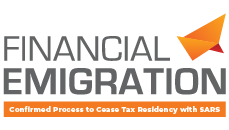UNDERSTANDING SOUTH AFRICAN EXPAT TAX
Amendments to the Income Tax Act will soon see all South Africans working outside the country’s borders contribute to the fiscus from 1 March. Currently, South Africans working outside the country’s borders for more than 183 days are exempted from paying tax to their home country. The amendment will now see a cap of R1…





